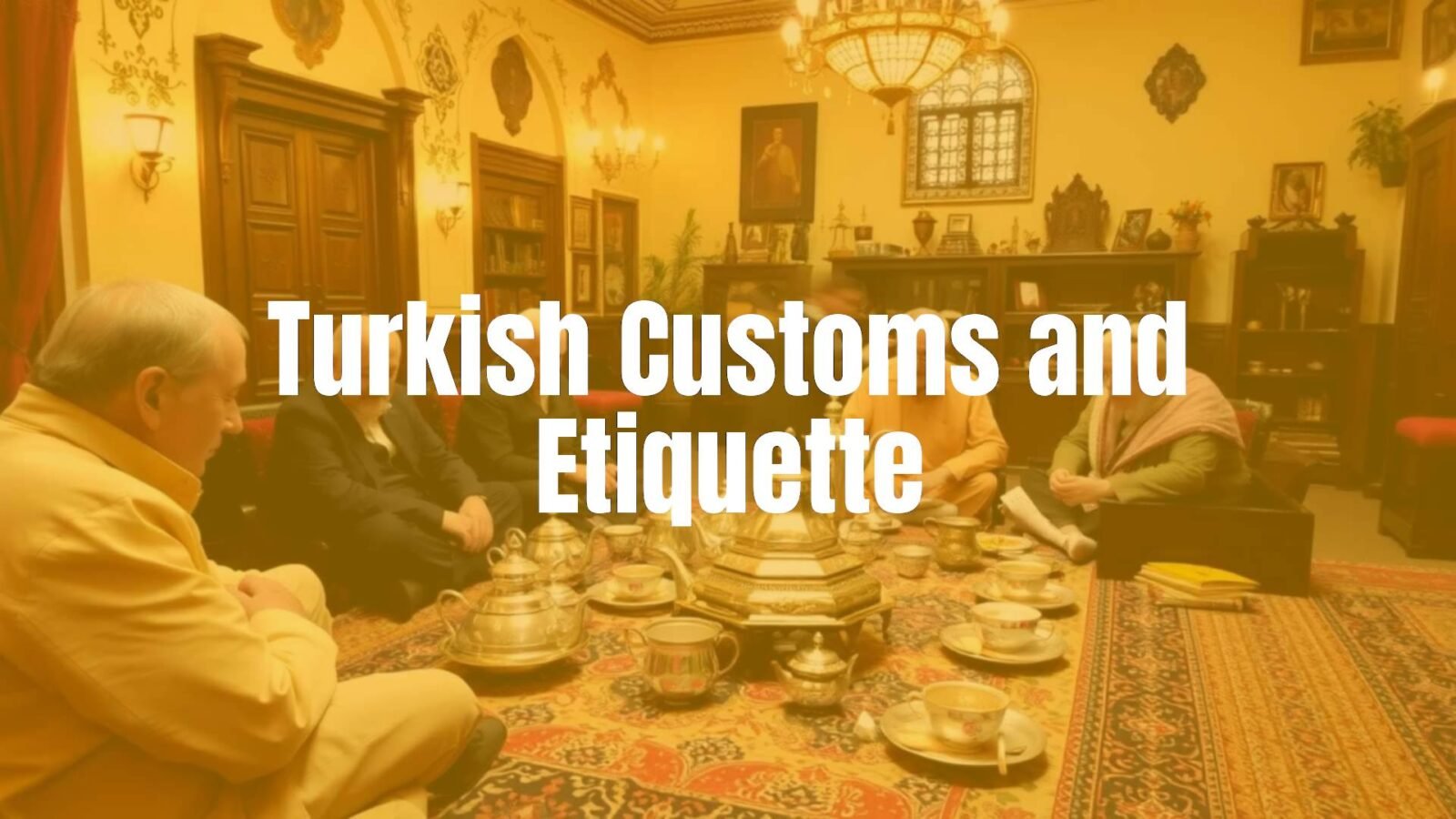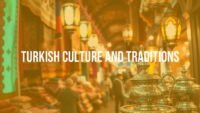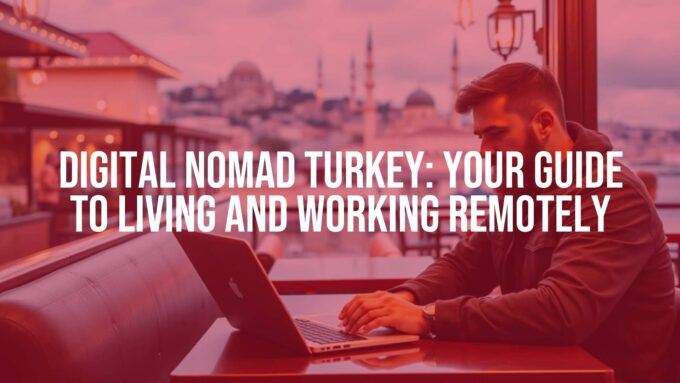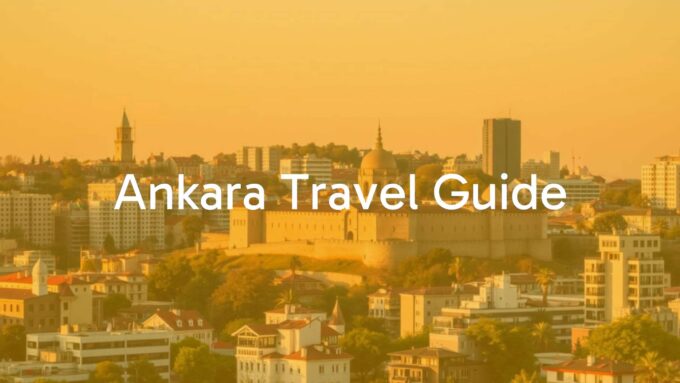Visiting Turkey is like entering a lively mix of both Eastern and Western cultures, where old traditions blend with new trends. Here, hospitality is more than a polite act-it is a central part of daily life. Knowing the basics of Turkish customs and manners can turn your trip into a smooth and pleasant experience. What stands out most about Turkish etiquette? It’s mostly about respecting elders, valuing family ties, and caring about the wider community. You’ll notice this in greetings, social gatherings, speech, and even everyday habits. Learning these simple rules, from how to greet people to table manners or showing respect in a mosque, helps you make real friendships and avoid accidental lapses.
This simple guide is here to help you understand the main customs so you can handle different social situations with ease. Whether you’ve never been to Turkey before or have visited many times, getting to know Turkish etiquette will make your travels more enjoyable and help you connect with local people.
What are Turkish Customs and Etiquette?
Main Values in Turkish Culture
Turkish culture is centered around certain main values that influence how people behave. The most important is respect (saygı), especially for older people, and a sense of belonging to a group. Hospitality (misafirperverlik) is not just about being polite; it shows a real wish to make guests feel comfortable and welcome. This often includes offering tea without being asked or inviting you to join a meal. It’s polite to accept when possible, as turning down these invites might feel rude.
Honor (onur) and dignity-both personal and family-are also highly respected. Most people want to avoid anything that could bring shame, so they may choose gentle or indirect ways to communicate difficult topics, allowing everyone to “save face.” National pride is also strong and shown by respect for flags, national figures like Atatürk, and historical events.
Family Roles and Social Structure
Family holds a very important place in Turkish society, creating the main structure for daily life and social order. Families often include grandparents, aunts, and uncles, and their opinions are taken seriously. Respect for the older generation stands out, as shown by traditions like kissing the hand of an elder and then touching it to your forehead-a small ceremony showing love and respect.
Hierarchy in families is often based on age and gender, but attitudes can be different depending on whether the household is modern or traditional. Important decisions, especially about marriage, usually involve advice from the whole family. Although city life is gradually changing these habits, family respect and the influence of elderly relatives are still strong across Turkey.

Greetings and Everyday Politeness in Turkey
Ways to Greet: Handshakes, Cheek Kissing, and Addressing People
Greetings depend on your relationship with the person. In formal or work settings, men usually shake hands firmly and look each other in the eye, while women’s handshakes are lighter. When a man greets a woman, he should follow her lead: offer a handshake if she offers hers. If she leans in for cheek kisses, return the gesture. If there is no cue, just nod and say “merhaba” (hello), as some people for religious reasons avoid contact between genders.
Closer friends and family use more affectionate greetings. Men might hug or kiss both cheeks; women do the same. There are also unique gestures-some men touch temple to temple as a greeting, which has cultural roots. To politely refuse an offer, place your hand over your heart-this says “thank you, but no.”
Respectful Titles and Address
Using correct titles is important. Men’s names are followed by “Bey” (like Mr.), such as “Ertan Bey.” Women’s names are followed by “Hanım” (like Ms.), for example, “Ayşe Hanım.” Always use professional titles (Doktor, Profesör, Avukat, etc.) where relevant, and combine them with names or stand-alone. When speaking to someone you don’t know, “Efendim” (meaning “sir” or “ma’am”) is used widely, especially by staff like waiters or shopkeepers.
Showing Respect for Elders
Standing up when an elder enters the room and offering your seat are basic signs of respect. The hand-kissing tradition still exists-kiss the elder’s right hand and raise it to your forehead. This is mostly for family or respected elders in the community. Sometimes, elders may kiss younger relatives on the forehead, for example, a father to his daughter. Usually, the elder guides how the greeting should go.
Personal Space, Eye Contact, and Touch
Personal space is slightly closer in Turkey compared to many Western cultures, which can feel warm or a little crowded to visitors. Friends and family often stand or sit close to each other and touch more often. Women may walk holding hands or with arms linked; men might walk arm-in-arm or even hold hands. However, touches below the waist, like on the leg, are inappropriate. Physical touch between men and women in public is rare unless they are known as platonic friends. Keeping eye contact is important in conversations, showing that you’re listening and honest, but women sometimes avoid direct eye contact with men, especially in conservative settings.
Body Language and Gestures in Turkey
Using and Avoiding Common Gestures
Understanding local body language helps avoid misunderstandings. “No” is often shown by raising the chin and making a “tut” sound, while a regular nod means “yes.” To call someone over, wave your arm downward, hand facing the ground and fingers moving in a scratching motion towards yourself. To show something is “tasty” or “nice,” make a circle with your thumb and index finger and move your hand up and down, with an “Umum” sound.
Some gestures to avoid: Pointing with your finger, as it can be rude. The “OK” hand sign may be seen as a bad sign, so best not to use it. Crossing your legs so the sole of your shoe faces someone is disrespectful. Whispering at the table is frowned upon. Always cover your mouth if using a toothpick, and avoid blowing your nose loudly in public.

Public Affection and Social Rules
Public shows of love are generally modest in Turkey. Holding hands and quick pecks are okay for couples, mostly in cities like Istanbul, but deep kisses and close cuddles are discouraged in public. Since Turkey is mostly Muslim, general behavior in public-including for LGBTQ+ couples-tends to be careful and discreet. Watch the behavior of others around you and act in a similar way to show respect.
Social Etiquette: Visiting Homes and Gifts
Arriving and Removing Shoes
Being invited to a Turkish home is a special gesture that shows warm hospitality. Aim to arrive on time; being a little late is acceptable, but let your host know if you will be much later. Take off your shoes at the door-this shows respect for the household. You’ll usually find slippers to wear inside, and places to leave your shoes are clearly marked. Sometimes, relatives may drop by unannounced, which is normal and welcomed in Turkish culture.
Bringing a Gift
When visiting a home, bring a small gift as a sign of thanks. Popular gifts are pastries like baklava or a nice household item (for example, a vase). If your hosts have children, bring sweets or chocolates for them. Flowers are sometimes given-ask a shop for recommendations if you’re unsure. Special foods or crafts from your own country can also be nice gifts. Only consider alcohol if you know your hosts drink, as many Turks don’t. Present gifts when you arrive.

Table Manners as a Guest
Meals in Turkish homes are friendly and generous. Hosts take pride in offering plenty, and it’s polite to accept at least a little of everything and show you appreciate it. Wash your hands before eating, and sometimes a bowl of water is provided. You’ll use both utensils and your hands-especially when breaking bread or eating certain meats. Always eat with your right hand, not your left. Finish the food on your plate if possible, and compliment the food to show gratitude. Hosts will cover meal costs, so don’t insist on splitting the bill-simply thank them and invite them out another time if you wish.
Food Culture and Table Habits
Mealtimes and Social Eating
Food is a big part of Turkish life and brings people together. Typical meal times:
| Meal | Time |
|---|---|
| Breakfast (kahvaltı) | 8-10 AM |
| Lunch (öğle yemeği) | 12-2 PM |
| Dinner (akşam yemeği) | 7-9 PM |
Meals with guests often last a long time, as sharing food and talking at the table is seen as a way to strengthen friendships and family ties.
Table Setting and Where to Sit
In urban homes, meals are served at a dining table with cutlery. In villages, people might sit on cushions around a low table, and you should keep your feet tucked under, not pointing at others. Guests get the most comfortable seat. Food is shared from large platters, showing the importance of eating together.

What to Expect at and After Meals
Friendly conversation is encouraged during meals. Smoking between courses and after the meal is common. After eating, tea or Turkish coffee is served. Taste but don’t drink the dregs, as they are thick and grainy. Thank your host sincerely after the meal.
Tipping in Restaurants and Cafés
Tipping is common but not always required. First, check if a service charge is included. If it is, you don’t have to tip more unless you want to. If there’s no service charge, leave about 5-10% for good service. In small cafés, just rounding up the bill or leaving change is enough. Bellboys and cleaners in hotels usually receive 5-10 TL. For taxis, rounding up is a kind gesture but not required.
Religion and Daily Life
Muslim Traditions: Prayer and Ramadan
Most Turks are Muslim, and religion shapes many habits. Muslims pray five times a day-at sunrise, noon, afternoon, sunset, and night. You’ll hear the call to prayer in every town. Businesses may pause during prayer. During Ramadan, Muslims fast from sunrise to sunset-no food, drink, or smoking in public is respectful, especially in strict areas. Although Friday is the holy day, it’s not a public holiday; many men attend Friday prayers at mosques.
How to Dress: Men and Women
How you dress depends on where you are. Cities and tourist spots are more relaxed. In rural places and religious areas, choose modest clothing: women should avoid showing shoulders or knees and wearing short skirts; men should avoid shorts. Beach clothes should stay at the beach. Nude sunbathing is not allowed anywhere, while topless sunbathing is rare and limited to some resorts.
Visiting Mosques
Mosques are peaceful places open to visitors. Take off your shoes before entering; bags or shelves are provided for storage. Women must cover their heads with a scarf; both men and women should have shoulders and upper arms covered, and no shorts or short skirts. Try to avoid visiting during prayer times, especially noon on Fridays. Inside, keep your voice low, avoid photographing worshippers, and respect those praying. Donations for upkeep are welcome, even though imams are state employees.

Festivals and Special Days
Main Holidays
There are both national and religious holidays in Turkey. Main national holidays:
- Republic Day (October 29): Celebrated with parades
- Victory Day (August 30): Marked by military parades and events
Major religious holidays follow the Islamic calendar so their dates change each year. The two biggest are Eid al-Fitr (Şeker Bayramı) at the end of Ramadan, celebrating with meals and sweets, and Eid al-Adha (Kurban Bayramı), when animals are sacrificed and the meat is shared, especially with the poor. Children often get gifts and sweets, and families travel to be together.
Traditions During Festivities
Family visits, especially to elders, are important during holidays. The hand-kissing custom is practiced often at these times. Homes are cleaned and decorated, and special foods are prepared. Sharing with the poor is a routine part of religious holidays, and at events like the Gaziantep Culinary Festival, local foods and customs are celebrated.
Public Spaces and Getting Around
Using Public Transport
Buses, trains, and city trams are popular ways to get around. In big cities, travel cards (like Istanbulkart) make paying easier. It’s polite to give your seat to older people, expectant mothers, and people with young children. Smoking is not allowed on public transport. Keep your phone quiet and respect people’s space, especially during busy hours.
Hamams (Turkish Baths)
Hamams, or Turkish baths, are relaxing and traditional. You’ll usually change in a locker, get a thin towel to wrap around you, and wear wooden clogs. Bring your own soap and shampoo. Inside the steam room, basins are for washing, and the central heated stone is for lying down and getting a scrub or massage. Pour water over your spot before you leave. Tipping is usually not needed unless you’re at a touristy hamam.
Smoking, Behavior, and Cleanliness
Many adults smoke, but since 2009, smoking is banned in public places, including cafés and bars. Some places try to bend the rules, but stick to smoke-free areas indoors. Avoid getting drunk in public-this is not looked upon kindly, especially for women. Trash bins in toilets are for used toilet paper since the plumbing might block easily; bringing your own toilet paper is a good idea. Clean and polite behavior is always appreciated.
Bargaining and Shopping Habits
How to Bargain in Markets
Bargaining is routine in Turkish markets, especially for things like rugs, pottery, or souvenirs. Bargaining is friendly and can include tea and casual chat. Start by suggesting a lower price and work towards a deal, but always be polite. Don’t push too hard or get upset-enjoy the process. In large stores or supermarkets, prices are fixed and bargaining isn’t done.
Shopping Manners
In department stores, friendly interaction is still valued, even if prices are set. A little small talk is welcome. Familiar items to buy include carpets, ceramics, spices, and fabrics. Help is usually available and shopkeepers are friendly. In business, being on time is important, so try not to take up too much of the shopkeeper’s time if they are busy. Use Turkish greetings and “thank you” to make a good impression.
Workplace Etiquette in Turkey
Business Greetings
First impressions matter. Men shake hands firmly and look each other in the eye; for women, wait to see if they offer a handshake. No cheek-kissing at work. Always use professional titles. Giving and receiving business cards with both hands is a polite touch, and having your card in Turkish on one side is impressive, though not required. Relationship-building usually comes before work matters in meetings.
Dress Code and Formality at Work
Business style is smart and formal. Men wear ties and suits, while women wear smart business clothes. In summer, men in cities may remove their ties, but in small towns and rural areas, both men and women dress modestly-no shorts or revealing clothes. Neat and conservative clothing shows respect and seriousness.
Communication, Negotiation, and Punctuality
Being on time for meetings is expected, but some waiting may still happen. Negotiations can be slow, sometimes starting with big offers on both sides. Stay patient, be clear, and focus on friendly dealings. Avoid pushing deadlines. Personal relationships matter for business deals. Support presentations with visuals (charts, maps) as well as words. Decisions may take time and often rest with the most senior person. Small talk before business discussion is usual.
Gifts in Business Settings
Big gifts are not common in Turkish business. If you offer a gift, choose something simple from your country, and avoid alcohol unless you’re sure it will be welcome. Relationship-building and polite behavior mean more than gifts; long-term trust is the goal.
Useful Tips and Common Mistakes
Things to Avoid and Difficult Subjects
Some topics are best not discussed, such as criticizing Atatürk, which is taken very seriously and could bring legal trouble. Political debates or talking about history or ethnic differences should be done very cautiously. Don’t act loudly or draw too much attention in public, especially in conservative areas. Complaining about Turkey is considered disrespectful. Avoid strong public affection or drunkenness for men and women alike.
Advice for Women, LGBTQ+ Travelers, and Minorities
- For women: Dress modestly, stay aware of your surroundings, and walk confidently. If bothered, calling out loudly (“Ayıp!” or “Beni rahatsız ediyorsun!”) can help as bystanders will often step in.
- LGBTQ+ travelers: Although same-sex acts are legal, public attitudes are reserved outside large cities. Openly promoting LGBTQ+ identities is still very limited. Recognized “gay-friendly” spots exist mostly in big cities.
- Ethnic minorities: In remote places, visitors with different backgrounds may get curious looks or comments but, on the whole, racism is low in Turkey. Many well-known Black athletes play football there, and Black and Asian people are seen more often in large cities.
Overall, being respectful and following local customs is the best way to have a smooth visit.
Frequently Asked Questions About Turkish Etiquette
- Does engagement make a couple legally bound in Turkey? No, it is just an agreement.
- Why move the wedding ring from the right to left hand? Rings switch sides after marriage. The “red book” is the official marriage proof.
- Is the head bump greeting common? It started with a political party, but now it’s a friendly greeting among men in many suburbs.
- What does putting your hand over your heart mean? It shows thanks or politely refusing more food.
- Is kissing an elder’s hand usual? Yes, mainly for close, much older relatives.
- Do men hug and tap backs? Yes, as a friendly brotherly way of greeting.
- How to repay hospitality? Invite your hosts for a meal or give a small present.
- When do couples meet parents? Usually when things are serious. Parents often care that grandchildren will be raised Muslim in mixed marriages.
- What does the thumb-in-mouth-and-head-tilted gesture mean? It’s a traditional way to prevent the soul from leaving during a scare.
- What does “Give me your blessing” mean? It can be for good luck or getting approval, while refusing it shows a lack of support.
- Are Turkish families less individualistic? Yes-respect for elders’ wishes is considered important and is part of Islamic teachings.















Leave a comment